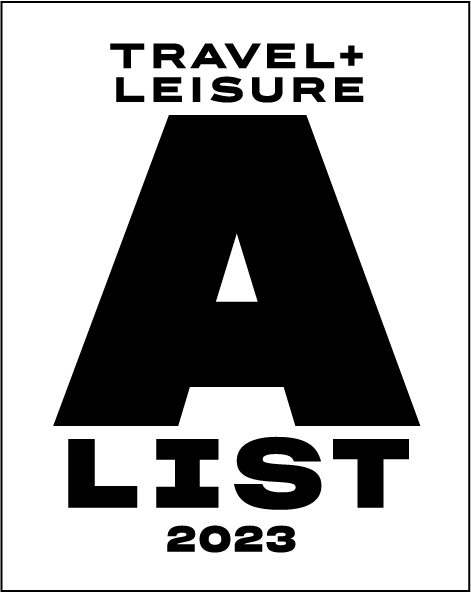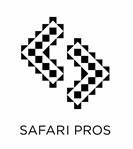Before you go to Zimbabwe
At 390 757 square kilometres, Zimbabwe is about the size of California. It is a landlocked country blessed with fertile soils, mineral wealth and wonderful wildlife and natural scenery. Two major rivers form its northern and southern boundaries: the great Zambezi River cuts along its northern frontier, while the more languid Limpopo forms the southern border with South Africa.
INTERESTING FACTS
Green in the Zimbabwean flag represents the agriculture and rural areas of Zimbabwe, yellow the wealth of minerals in the country, red the blood shed during the first and second Chimurenga (wars) and black the heritage and ethnicity of the native Africans of Zimbabwe. The white triangle on the side represents peace, while the Zimbabwe Bird is the national symbol of Zimbabwe and the red star denotes the nation's hopes and aspirations for the future.
GOVERNMENT
The United Kingdom annexed Southern Rhodesia from the British South Africa Company in 1923. UN sanctions and a guerrilla uprising finally led to free elections in 1979 and independence (as Zimbabwe) in 1980. Zanu-PF has since dominated the country's political system until the formation of a unity government between ZANU-PF and the Movement for Democratic Change (MDC) in 2009.
ECONOMY
Despite Zimbabwe’s mineral wealth, the government of Zimbabwe faces a variety of difficult economic problems. Its 1998 – 2002 involvement in the war in the Democratic Republic of the Congo drained hundreds of millions of dollars from the economy. The government's chaotic land reform programme has badly damaged the commercial farming sector, traditional source of exports and foreign exchange, turning Zimbabwe into a net importer of food products. Until early 2009, the Reserve Bank routinely printed money to fund the budget deficit, causing hyperinflation. The economy is now registering its first growth in a decade due to the elimination of the Zimbabwe dollar and removal of price controls, however, is reliant on further political improvement for greater growth.
CURRENCY
With the removal of the Zimbabwean Dollar in 2009, the country has adopted a multi-currency system, with the US Dollar being the most widely used.
LANGUAGE
English is the official language. Other widely spoken languages are Shona and Sindebele, which also have various dialects and other minority languages.
TIME
Zimbabwe shares the same time as all southern Africa, except Namibia, which is Greenwich Mean Time – (GMT) + 2 hours.
CLIMATE
The weather in southern Africa is generally pleasant throughout the year – warm to hot days, and cool to warm nights. During our winter months however (May to August), it can get really cold at night and in the early morning, particularly when on safari, so we would like to suggest that you pack accordingly – very warm clothing including an anorak/winter jacket, a beanie, scarf and gloves are recommended. Please also refer to our packing suggestions list.
Generally, the days are bright and sunny and the nights clear and cool. November to April are the summer months (which is also the rainy season) while winter is from May to August (which usually brings dry weather). September and October are very hot and very dry. The winter months from May to August inclusive, can bring freezing temperatures (below 0°C sometimes) in the early morning and evenings.
Temperature (ºF) – These are the average lows and highs:
|
|
Jan |
Feb |
Mar |
Apr |
May |
Jun |
Jul |
Aug |
Sep |
Oct |
Nov |
Dec |
|
VFA |
63/89 |
63/86 |
64/88 |
57/84 |
50/84 |
44/77 |
43/77 |
46/82 |
57/91 |
64/93 |
64/87 |
63/87 |
Average Rainfall (inches) – This varies according to the year and location:
|
|
Jan |
Feb |
Mar |
Apr |
May |
Jun |
Jul |
Aug |
Sep |
Oct |
Nov |
Dec |
|
VFA |
8.5 |
7.3 |
3.9 |
1.7 |
0.2 |
0.1 |
0.0 |
0.1 |
0.2 |
0.8 |
3.9 |
7.5 |
VFA = Victoria Falls
Public Holidays
The dates of certain public holidays change from year to year – refer below. If a public holiday falls on a Sunday, then the Monday is also declared a public holiday.
01 January New Year’s Day
Varies Good Friday
Varies Easter Monday
18 April Independence Day
01 May Workers’ Day
25 May Africa Day
11 August Heroes Day
Second weekend August Defence Force’s National Day
22 December National Unity Day
25 December Christmas Day
26 December Boxing Day
USEFUL INFORMATION
VISAS
Visas are the responsibility of the traveller. Those nationalities that require visas to enter Zimbabwe may have to apply for these in advance, however, some nationalities are able to obtain these on arrival at the port of entry. Costs also vary depending on the nationality of your passport so please contact your travel consultant for exact details relevant to you. Visit the following website for additional information: www.zimbabwe-embassy.us.
Please Note:
- If possible and required, our recommendation is to obtain your Zimbabwe visa prior to arrival, as this will expedite the immigration process at both airport and border crossing.
- If visas are required, please ensure you have the correct cash amounts (US Dollars) available as credit cards and Travellers Cheques are not accepted.
- You must advise the relevant official of the total number of days that you are spending in Zimbabwe otherwise you may be charged to obtain an extension/additional visa later on.
- If you arrive in Zimbabwe before continuing with your safari in another country (such as Botswana, Namibia or Zambia) and then return to Zimbabwe prior to departure; or will be staying in Victoria Falls, Zimbabwe and doing some touring across the border into Botswana or Zambia, then a double-entry visa must be obtained on arrival from the immigration official.
CURRENCY & CREDIT CARDS
As the country has adopted a multi-currency system for payments, hard currencies such as US Dollars, GBP Sterling, Euros and South African Rand are accepted widely and you are encouraged to carry small denominations for ease of trade. Though credit cards are generally not accepted as a form of payment, there are some hotels that will – Visa is most widely accepted, while MasterCard and American Express are less so. Please check with your travel consultant for specifics prior to travel.
BANKS
Banking hours in Zimbabwe are Monday to Friday: 08:00 – 14:30 and Saturday: 08:00 – 11:30.
SHOPPING
Zimbabwe sells a wide range of locally made soapstone statues, wooden carvings, baskets, crotchet-ware and hand printed African sarongs.
VALUE ADDED TAX (VAT)
Most goods and services in Zimbabwe are priced to include value added tax (VAT) of 15%, however, this is not refundable to visitors.
DEPARTURE TAXES
Major airlines include Departure Taxes in their ticket costs. However, if you are travelling on cross-border private charter flights ex Zimbabwe, you must pay this directly at the airport. In addition to the Departure Taxes, there is an AIDEF tax which has been introduced in Zimbabwe to fund the upgrading of its airports. This tax needs to be paid either directly by the client on departure per light aircraft/private charter or will be included in the costs of any scheduled/commercial airline ticket. Currently, and subject to change, these taxes are:
- Domestic flights – US$ 10.00 departure tax plus US$ 5.00 AIDEF fees (Aviation Infrastructural Development Fund), total of US$ 15.00 per person
- International flights – US$ 35.00 departure tax plus US$ 15.00 AIDEF fees (Aviation Infrastructural Development Fund), total of US$ 50.00 per person
This is applicable on departure from any registered, manned airports which include Harare, Bulawayo, Kariba, Hwange and Victoria Falls airports. This fee must be paid direct at the airport in US$ cash or the equivalent in previously mentioned hard currencies.
Small denominations of US Dollars are encouraged for easier and quicker transactions and it helps to have the exact amount to hand as change is sometimes not provided. Travellers Cheques and credit cards are also not accepted for this purpose.
EXCESS LUGGAGE
If you need to bring luggage in excess of your allowance, you may have the option of buying an extra seat. This "seat in plane" allows for a maximum of 70 kg (154 lb) excess weight, on the proviso that the bag/s conforms to the dimensions 40 x 40 x 80cm (16 x 16 x 31 inches); soft bag, i.e. no wheels/frame/rigid structures; able to physically fit onto a light aircraft seat; able to be physically secured with one seatbelt; will not impact on the comfort of other guests on the flight. The additional cost of this varies depending on your flight schedule so please contact your agent for further details.
Should guests have excess luggage which does not need to accompany them throughout their safari, and they are arriving as well as departing from Victoria Falls, we can make arrangements for the excess luggage to be stored in our Victoria Falls operations office at an extra charge of US$ 5.00 per bag. The luggage can then be returned to the guest either at their hotel in Victoria Falls (if they are staying overnight) or by luggage transfer to the airport. This service, which is normally the most practical method of handling excess luggage in Zimbabwe, is charged for at a nominal rate and you are advised to pre-book it through your agent prior to travel. We do not anticipate any problems with stored luggage being damaged or stolen, however, guests must ensure that they are in possession of full travel insurance including luggage cover. Wilderness Holdings and its subsidiary companies, and any person or agent acting for, through or on behalf of said companies, will not be liable for any loss or damage whatsoever arising from any cause whatsoever.
ELECTRICAL
In major cities, electrical appliances run on 220/240V AC accessible via 14-amp, square-pinned plugs. While some camps can supply adaptors (3-prong round, 3-prong square, 2-prong round, 2-prong flat) it is advisable that you carry your own.
SIGHTSEEING
If you are visiting Victoria Falls, there are many optional tours available. Please contact your travel consultant for further details and we do recommend that these are pre-booked to avoid disappointment.
Please Note:
- The Victoria Falls/Zambezi River experiences low water levels between August and January (subject to rainfall).
- In order to participate in a white water rafting excursion, you will need to spend a minimum of two nights in Victoria Falls.


